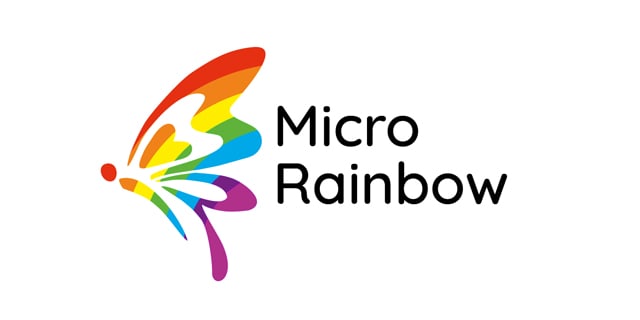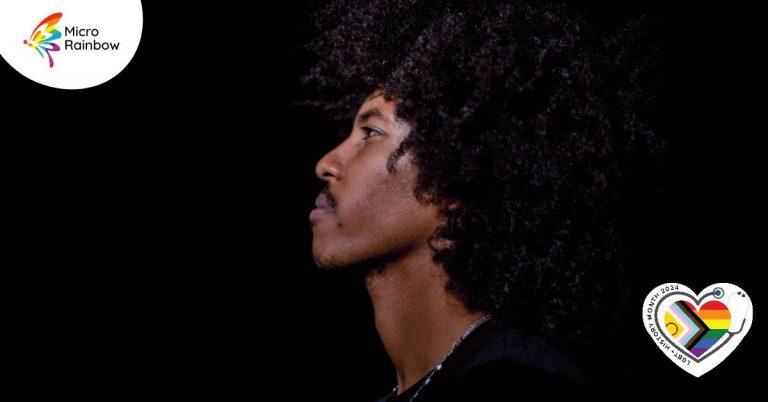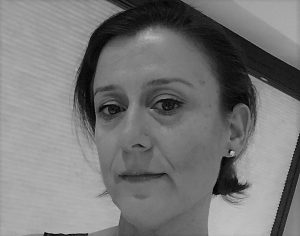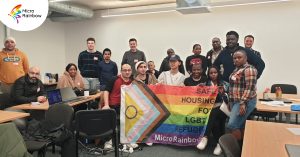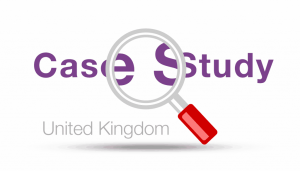The theme of LGBT+ History Month 2024 is Medicine: #UnderTheScope. The theme celebrates the contribution of LGBTQI to the field of medicine and healthcare, throughout history, and in the present day. Micro Rainbow is marking LGBT+ History Month by celebrating people in our community who work in healthcare.
Many people in Micro Rainbow’s community of LGBTQI refugees and asylum seekers are highly skilled and qualified, and often worked in the healthcare systems of their home countries. Sometimes, once they receive their refugee status, they can convert their qualifications and work in the NHS. Some LGBTQI people seeking asylum are also able to work in healthcare because several roles fall under the shortage occupation list.
The shortage occupation list is a list of occupations where employers face a shortage of suitable labour and where it is deemed sensible to fill those shortages with migrant workers. In 2021 and 2022 the shortage occupation list was expanded to include positions like nursing (and nursing assistants), and care work. This opened the possibility of employment up to more people seeking asylum. Many people in the Micro Rainbow community have been able to work as carers since this change came in, and one of those people is Biruk, from Ethiopia. This is his story.
Biruk's story
“My name is Biruk, and I am a gay man from Ethiopia. In my home country it is illegal to be LGBTQI. The maximum penalty same-sex sexual activity is three to fifteen years imprisonment. Being gay is not accepted, and LGBTQI people like me face discrimination and persecution. It is not safe to be open about who you are. In 2021, I fled Ethiopia and claimed asylum in the UK.
“After arriving in the UK, I stayed in a hotel and then a hostel. In the hostel I had to share a room with many other Ethiopian men. It wasn’t safe for me to be housed with my countrymen – they have the same homophobic attitudes I fled Ethiopia to escape. When I asked staff for a single room because I was gay, they outed me in front of everyone in the hostel. It wasn’t a safe place for me.”
Micro Rainbow housing
“Luckily, I already knew about Micro Rainbow before I left Ethiopia. I was told about Micro Rainbow’s work by a volunteer from House of Guramayle, an organisation for LGBTQI Ethiopians and Eritreans. I was on the waiting list to be moved to a Micro Rainbow safe house, and in April 2022 I finally moved in.
“After I moved to the Micro Rainbow house I felt so much safer. I made friends with my housemates – including one, Roman, who I consider a close friend. Once I moved into the house, I was able to make more friendships and community connections. I started attending college, doing a course in health and social care, and getting my GCSEs.”
Finding my vocation
“Eventually, while I was still waiting for my refugee status, I was able to start working. I studied accountancy in Ethiopia and worked in various roles. I worked as a hairdresser, as a sales assistant in an electrics shop, and in hospitality roles. However, none of these occupations were on the shortage list, so I found work as a care assistant, which is on the list.
“I had never done this kind of work before, but I was surprised to find that I like it and am good at it! Now, I have my refugee status, so I have moved into a more specialised role, as an autism support worker. In this role, I provide one-to-one support for autistic with complex needs living in supported housing. Some of the people I support are quite independent, some less so. My job is to help them day to day with a variety of different tasks. This ranges from personal care – helping them to get up in the morning and showering, to helping make their breakfast and other meals, and so on.
“Structure and routine can be hugely important to autistic people, and this the case for the people I support. I support several people, and they each have their own specific routine. For example, one person likes to go for a walk every day after breakfast, so I accompany them. I know the routine of everyone I support – this is an important part of my role. I also help with day-to-day chores, like cooking, cleaning, and going shopping. I help them go to their activities and clubs and make sure their needs are met.”
The rewards of my job
“I work three days a week, and spend one day at college studying health and social care. I find my work as an Autism Support Worker extremely rewarding. I have a great bond with the people I support. My favourite bit of my job is when I arrive in the early mornings to help the people I care for get up. They know I am coming and their eyes light up when they see me. I don’t have a family here, and in some ways they have become my family.
“I don’t have a lot of contact with my family back home. They don’t know I am gay and I know they wouldn’t accept it if they knew. I’m not ready to deal with them knowing so I haven’t told them. However, in the UK I am out, I am open about my sexuality at work. My colleagues have been welcoming and friendly. I found out that one of them is a lesbian. Sometimes, when people are less friendly, I have tried to educate them a bit, but mostly they are ok.
My future
“I started doing this job because it was a shortage occupation, and it was the only thing available for me to do. But now I love it. I love helping people, and caring for people. After I finish my health and social care course, I want to apply to university to study nursing or radiography. I know that I want to continue doing something that involves caring for and helping people.”
